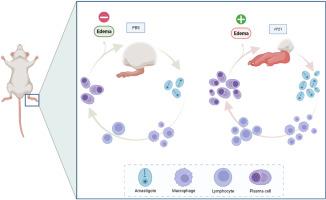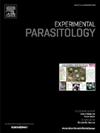Trypanosoma cruzi P21 protein exacerbates Leishmania (L.) amazonensis infection
IF 1.4
4区 医学
Q3 PARASITOLOGY
引用次数: 0
Abstract
The protozoan parasite Trypanosoma cruzi, the etiological agent of Chagas disease, affects millions of people worldwide. Current treatments rely on drugs effective only in the acute phase, making the search for new therapeutic targets a priority. While a recombinant protein based on T. cruzi P21 (rP21) exhibits immunomodulatory properties and contributes to controlling parasitism and inflammation during T. cruzi infection, its efficacy against other trypanosomatids remains unexplored. This study investigated the impact of rP21 on Leishmania (L.) amazonensis infection in a murine model. Contrary to our expectations, treatment with rP21 did not ameliorate L. (L.) amazonensis infection. Instead, rP21 treatment resulted in increased parasite load in the paws of infected BALB/c mice, evidenced by larger lesion sizes and higher parasite burdens, accompanied by an intensified inflammatory infiltrate in the paw tissue. These findings suggest that despite its promising effects in the context of T. cruzi infection, rP21 may not be a suitable therapeutic candidate for L. amazonensis infection and might even exacerbate disease.

克氏锥虫 P21 蛋白会加剧亚马逊利什曼病(L. amazonensis)感染。
南美锥虫病的病原体--南美锥虫是一种原生寄生虫,影响着全球数百万人。目前的治疗方法依赖于仅在急性期有效的药物,因此寻找新的治疗靶点成为当务之急。基于克鲁兹锥虫 P21(rP21)的重组蛋白具有免疫调节特性,有助于控制克鲁兹锥虫感染期间的寄生和炎症,但它对其他锥虫的疗效仍有待探索。本研究调查了 rP21 在小鼠模型中对亚马逊利什曼病(L. amazonensis)感染的影响。与我们的预期相反,用 rP21 治疗并不能改善亚马逊利什曼原虫感染。相反,rP21 治疗导致受感染的 BALB/c 小鼠爪子中的寄生虫数量增加,表现为病变面积增大、寄生虫数量增加,同时爪子组织中的炎症浸润加剧。这些研究结果表明,尽管 rP21 对 T. cruzi 感染有很好的疗效,但它可能不是治疗 L. amazonensis 感染的合适候选药物,甚至可能加重病情。
本文章由计算机程序翻译,如有差异,请以英文原文为准。
求助全文
约1分钟内获得全文
求助全文
来源期刊

Experimental parasitology
医学-寄生虫学
CiteScore
3.10
自引率
4.80%
发文量
160
审稿时长
3 months
期刊介绍:
Experimental Parasitology emphasizes modern approaches to parasitology, including molecular biology and immunology. The journal features original research papers on the physiological, metabolic, immunologic, biochemical, nutritional, and chemotherapeutic aspects of parasites and host-parasite relationships.
 求助内容:
求助内容: 应助结果提醒方式:
应助结果提醒方式:


